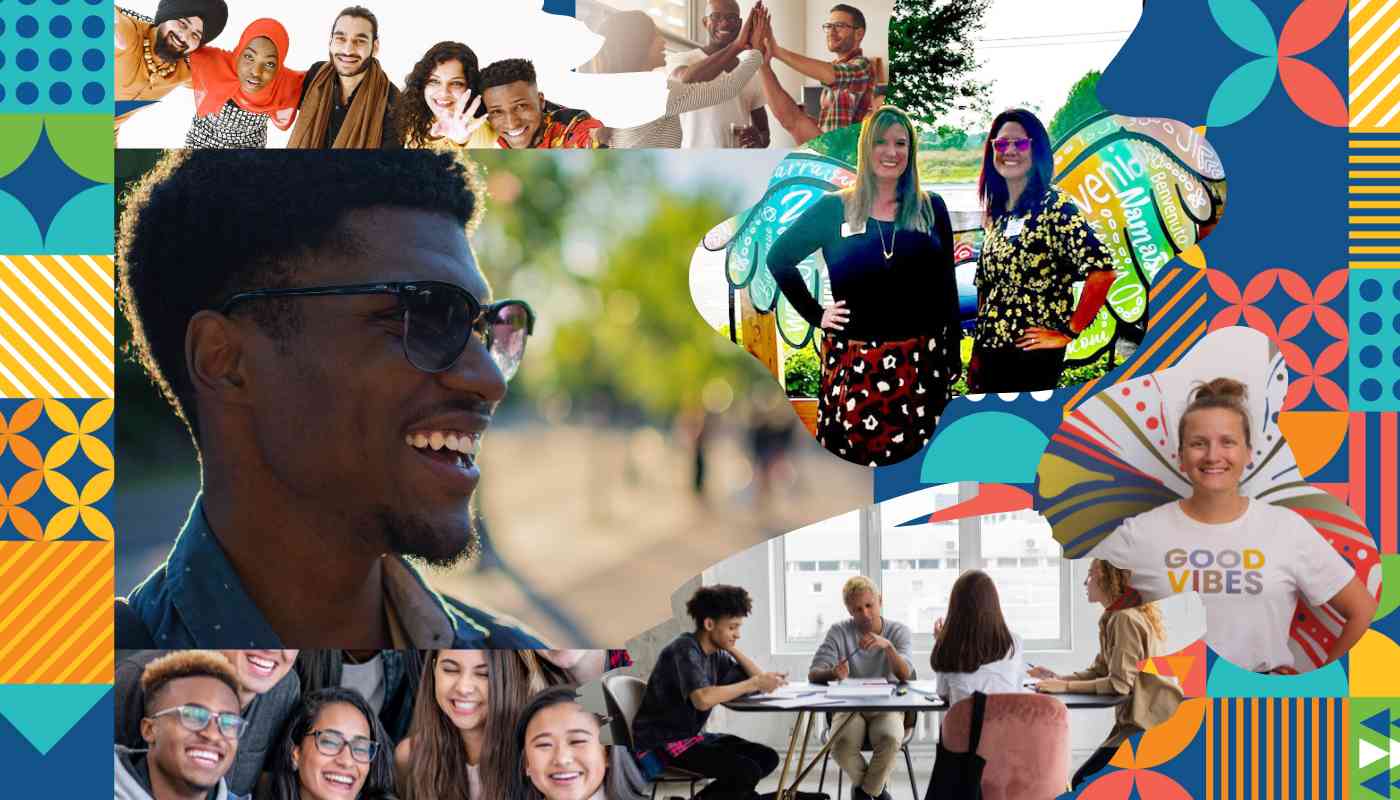
Welcoming Week
Celebrating Diversity

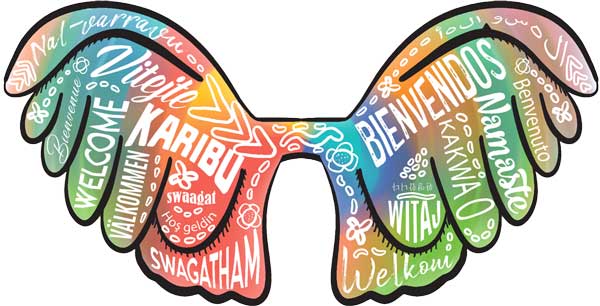
Welcoming Wings
Saying “Welcome is our language” means welcoming people from all over the world with open arms and encouraging them to spread their wings in our community. The brightly-colored Welcoming Wings highlight languages and imagery unique to some of the largest-represented countries of immigration in the Cedar Rapids area.
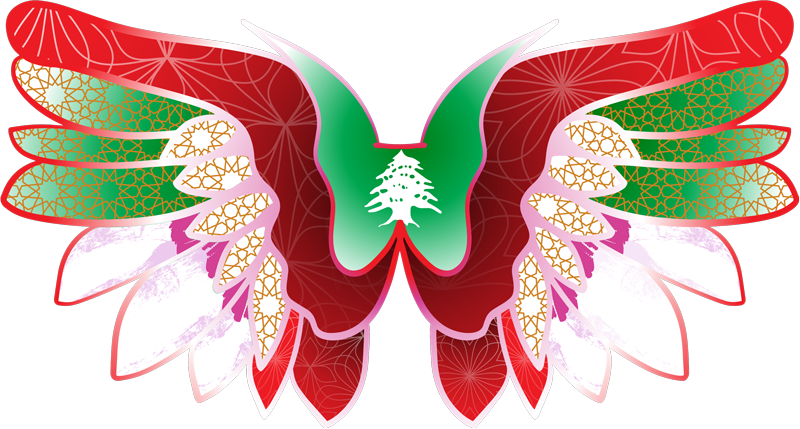
Wings of Lebanon
The Lebanese wings show the colors of the country’s flag combined with traditional patterns. The country’s national flower, the white and ruby colored Persian Cyclamen, is represented in the lower three wing feathers. A Cedar Tree, as seen in the middle of the wings and flag, symbolizes eternity, holiness, peace and longevity for the region.
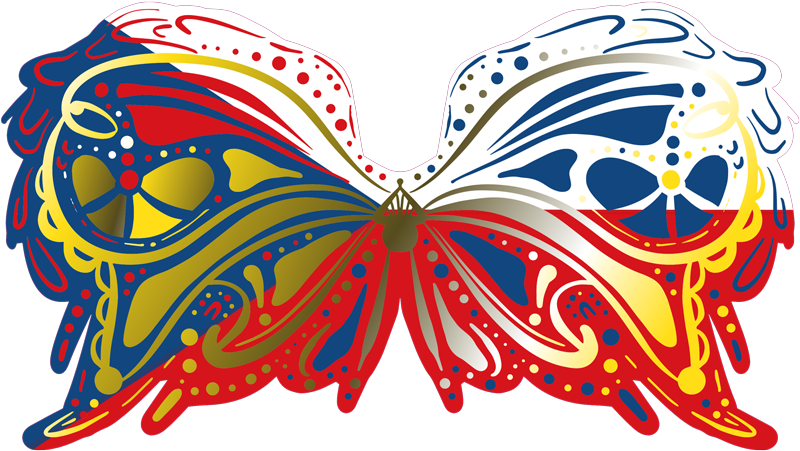
Wings of Czech Republic
The Czech wings you see here are composed of traditional Czech pattern designs and the colors of the Czech flag. White represents the people of the Czech Republic and their peaceful nature and honesty. Red represents courage, valor and patriotism, and blue symbolizes vigilance, truth, loyalty and perseverance.
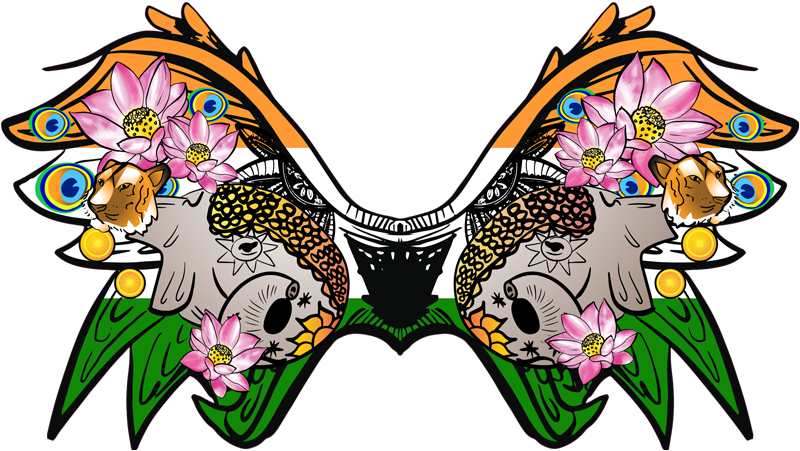
Wings of India
The Indian wings represent the colors of India’s flag, orange representing courage and sacrifice, white representing peace, unity, and truth, and green representing faith and fertility. The Dharma Chakra from the center of the flag is shown in the gold circles, and represents continuing progress of the nation and the importance of justice in life. As national animal and bird of India, the Bengal tiger and Peacock’s feather design also appear in the wings accompanied by the national flower, the Lotus. The elephant is a traditional symbol of divinity and royalty in India.
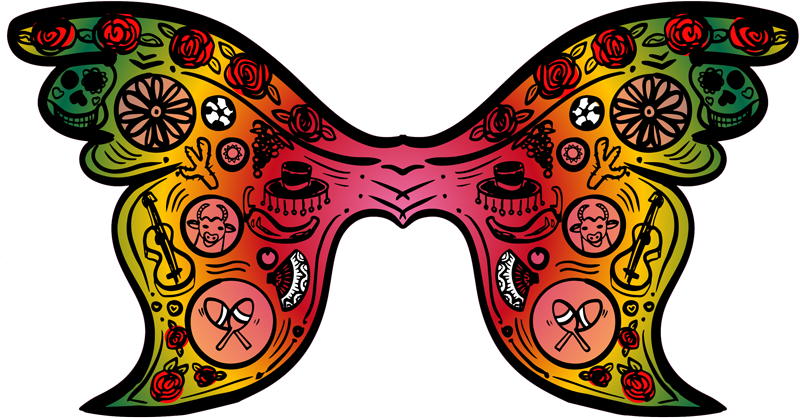
Wings of Spain & Mexico
The Spanish wings feature traditional symbols from Latin culture including maracas, soccer, traditional string guitars, Spanish fans, red Carnation flowers, Dahlia flowers, Sombrero hats, and the national animal of Spain, the bull. Día De Los Muertos, or Day of the Dead, in Mexico is a traditional celebration celebrated between October 31 and November 2, to remember and honor deceased loved ones. Sugar skulls, or calaveras, peek through as part of this tradition.
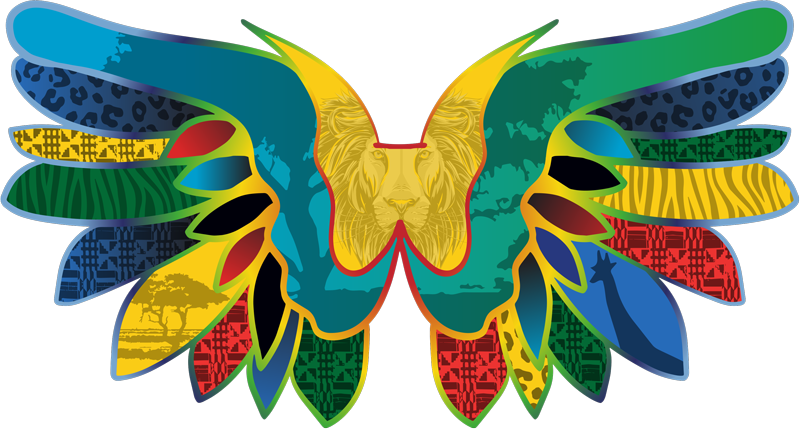
Wings of Africa
The African wings represent a wide area that includes more than 45 countries that are fully or partially south of the Sahara. There are many languages spoken in the region, but Swahili makes up the majority. These colorful wings represent many of the colors on flags in the region, along with patterns from wildlife like the leopard, cheetah, tiger and zebra. The figure of a lion is shown in the center, and is the national animal of Ethiopia, Gambia, Kenya, Libya, Morocco, Sierra Leone, and Togo among others. Saharan plains make an appearance as well as does traditional fabric patterns from the region, and a silhouette of the native giraffe.
Thank You to our Media Sponsor





